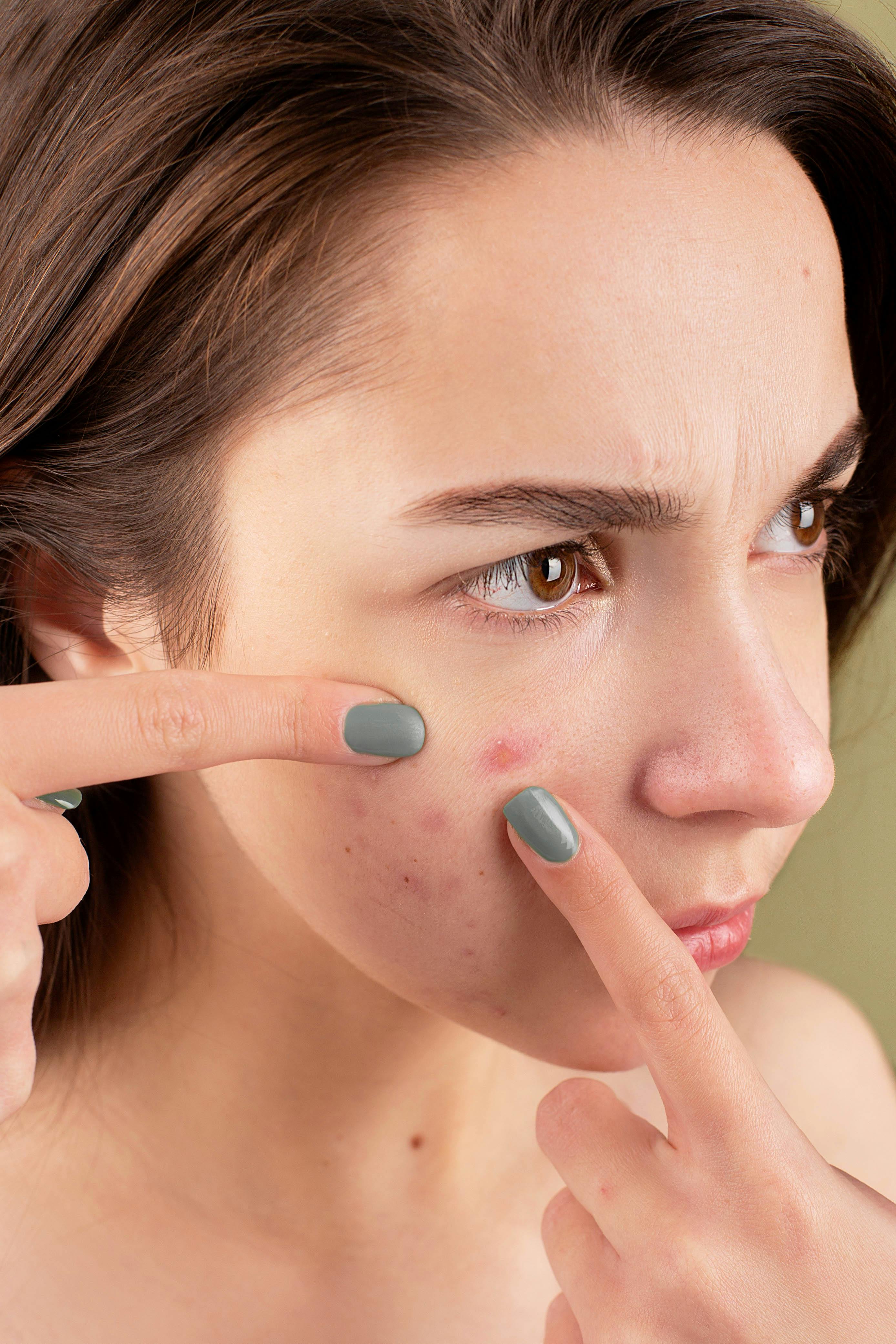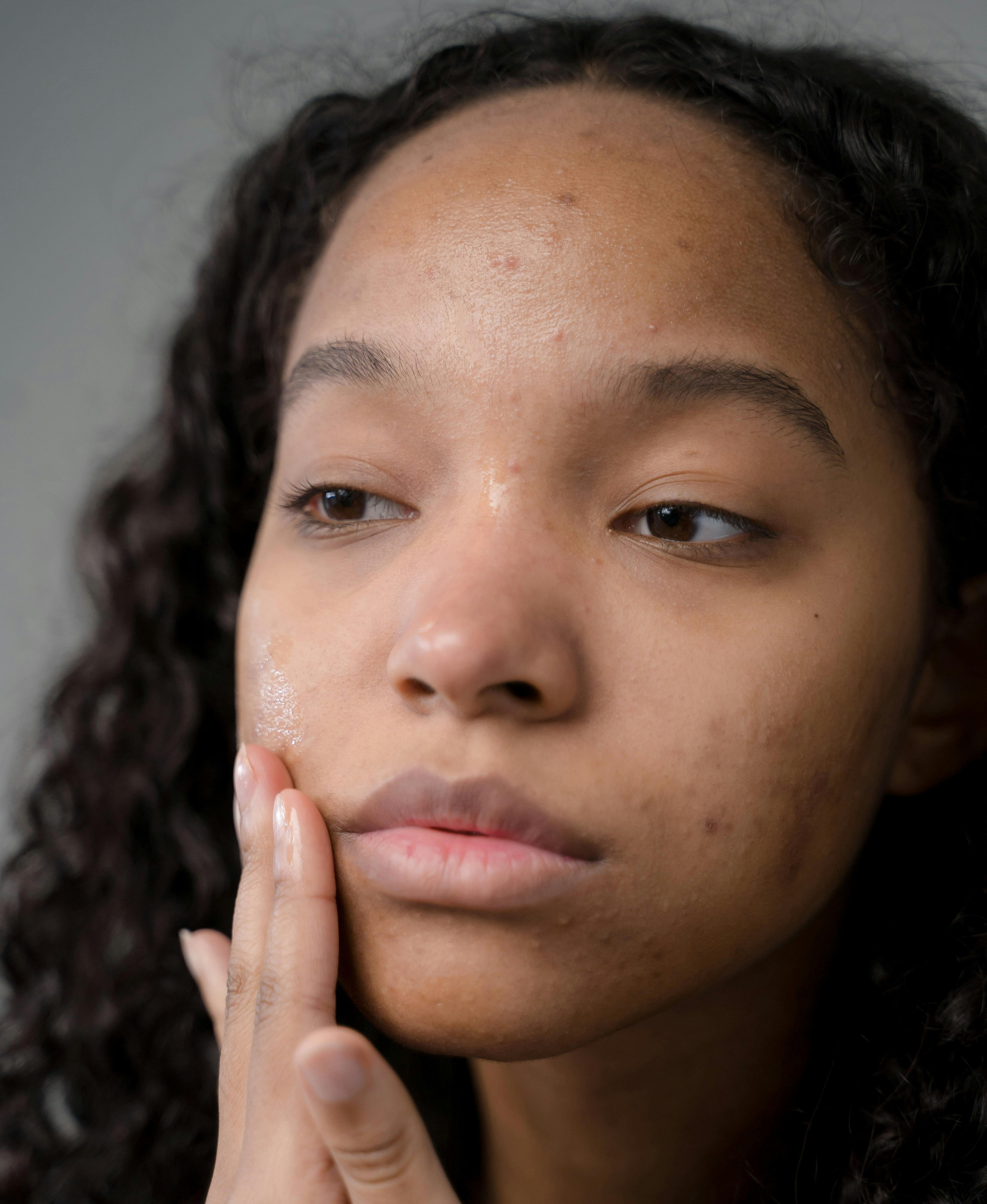Sudden Acne Breakout: How It Starts and How to Deal with Them

Experiencing a sudden acne breakout can be both perplexing and disheartening, particularly when it arises unexpectedly. By comprehending the underlying causes and embracing sophisticated strategies to manage these occurrences, you can reclaim the vitality and elegance of your skin. Let's explore the intricacies behind sudden acne breakouts and unveil the most refined methods to address them effectively.
What Causes Sudden Acne Breakouts?
Hormonal Changes
Hormonal fluctuations, such as those encountered during puberty, menstruation, pregnancy, or menopause, are often catalysts for sudden acne breakouts. These shifts can elevate oil production and lead to clogged pores and inflammation, resulting in the appearance of pimples.
Stress
Stress triggers the release of cortisol, a hormone that can aggravate acne by boosting oil production and inflammation in the skin. Elevated stress levels may also weaken the skin's natural barrier, making it more prone to breakouts.
Diet
Certain dietary choices, such as high-glycemic foods (e.g., sugary snacks, refined carbohydrates) or dairy products, may be linked to sudden acne breakouts. These foods can spike blood sugar levels and induce hormonal changes that promote acne development.
Skincare Products
Utilising skincare products that are comedogenic (pore-clogging) or contain irritating ingredients can exacerbate acne breakouts. Ingredients like heavy oils, fragrances, and alcohol can intensify inflammation and pore congestion, leading to sudden pimples.
Environmental Factors
Exposure to environmental pollutants, such as air pollution and UV radiation, can increase oxidative stress in the skin, exacerbating acne. Additionally, humidity and sweat can contribute to pore congestion and bacterial proliferation, leading to sudden breakouts, especially in hot and humid climates.
Medications
Certain medications, including corticosteroids, hormonal contraceptives, and some anticonvulsants, can disrupt hormone levels and trigger acne breakouts as a side effect. If you suspect that your medication is contributing to sudden acne, consult your healthcare provider for alternative options.
Is There a Quick Fix for Sudden Breakouts?
While there's no overnight solution for acne, there are steps you can take to help reduce the severity and duration of sudden breakouts. Quick fixes like spot treatments containing benzoyl peroxide or salicylic acid can help shrink pimples and reduce inflammation. However, consistent skincare and lifestyle habits are essential for long-term acne management.
Does Acne Go Away After Puberty?

For many, acne does improve after puberty as hormone levels stabilise. However, some individuals may continue to experience acne into adulthood due to genetic predispositions, hormonal imbalances, or other factors. Proper skincare and lifestyle habits can help manage acne breakouts regardless of age.
What Causes Sudden Acne Breakouts?
Hormonal Changes
Hormonal fluctuations, such as those experienced during puberty, menstruation, pregnancy, or menopause, can trigger sudden acne breakouts. These shifts can lead to increased oil production, clogged pores, and inflammation, resulting in pimples.
Stress
Stress stimulates the release of cortisol, a hormone that can exacerbate acne by increasing oil production and inflammation in the skin. High levels of stress may also weaken the skin's natural barrier, making it more susceptible to breakouts.
Diet
Certain dietary choices, such as consuming high-glycemic foods (e.g., sugary snacks, refined carbohydrates) or dairy products, may contribute to sudden acne breakouts. These foods can spike blood sugar levels and trigger hormonal changes that promote acne development.
Skincare Products
Using skincare products that are comedogenic (pore-clogging) or contain irritating ingredients can worsen acne breakouts. Ingredients like heavy oils, fragrances, and alcohol may exacerbate inflammation and pore congestion, leading to sudden pimples.
Environmental Factors
Exposure to environmental pollutants, such as air pollution and UV radiation, can increase oxidative stress in the skin and exacerbate acne. Additionally, humidity and sweat can contribute to pore congestion and bacterial proliferation, leading to sudden breakouts, especially in hot and humid climates.
Medications
Certain medications, including corticosteroids, hormonal contraceptives, and some anticonvulsants, can disrupt hormone levels and trigger acne breakouts as a side effect. If you suspect that your medication is contributing to sudden acne, consult your healthcare provider for alternative options.
Is There a Quick Fix for Sudden Breakouts?
While there's no overnight solution for acne, there are steps you can take to help reduce the severity and duration of sudden breakouts. Quick fixes like spot treatments containing benzoyl peroxide or salicylic acid can help shrink pimples and reduce inflammation. However, consistent skincare and lifestyle habits are crucial for long-term acne management.
Best Ways to Deal With an Acne Breakout
1. Maintain a Consistent Skincare Routine
A gentle skincare routine tailored to your skin type can help prevent and manage sudden acne breakouts. Cleanse your skin twice daily, exfoliate regularly to remove dead skin cells, and use non-comedogenic moisturizers and sunscreen.



2. Avoid Triggering Factors
Identify and avoid factors that may trigger acne breakouts, such as certain skincare products, dietary choices (e.g., high glycemic index foods, dairy), and lifestyle habits (e.g., smoking, inadequate sleep).
When to Seek Professional Help for Treating Sudden Acne Breakouts
If sudden acne breakouts persist despite your best efforts or if they are severe and causing distress, it may be time to seek professional help. Skin experts can assess your skin condition, discuss appropriate treatments, and provide personalised advice for managing acne.
Sudden Acne Breakout FAQs
"How long do sudden acne breakouts last?"
The duration of sudden acne breakouts varies, influenced by factors such as the underlying cause, skincare regimen, and individual skin response. Generally, with the right treatment and attentive care, most breakouts resolve within a few days to weeks.
"Will my acne go away by itself?"
While some mild acne breakouts may resolve on their own, persistent or severe acne often necessitates intervention to prevent scarring and long-term skin damage. Seeking professional guidance can help determine the most effective course of action tailored to your unique skin needs.
"Why is my acne getting worse with skincare?"
Acne can sometimes worsen initially when embarking on a new skincare regimen, as the skin acclimates to the products. This phenomenon, known as purging, is common when ingredients like retinoids or exfoliants boost cell turnover, bringing existing acne lesions to the surface more rapidly. However, if your acne persists or significantly worsens after several weeks, it’s crucial to reassess your skincare routine and consult with a dermatologist or dermal clinician to ensure your approach aligns with your skin's needs.
Get Professional Treatment for Your Acne Breakouts with Skin to Heart
If sudden acne breakouts are affecting your confidence and quality of life, don't hesitate to seek professional assistance. At Skin to Heart, our experienced skin experts offer personalised acne treatment plans to help you achieve clear, healthy skin. Schedule a consultation today in Malvern, and take the first step towards smoother, blemish-free skin.
0 comments

